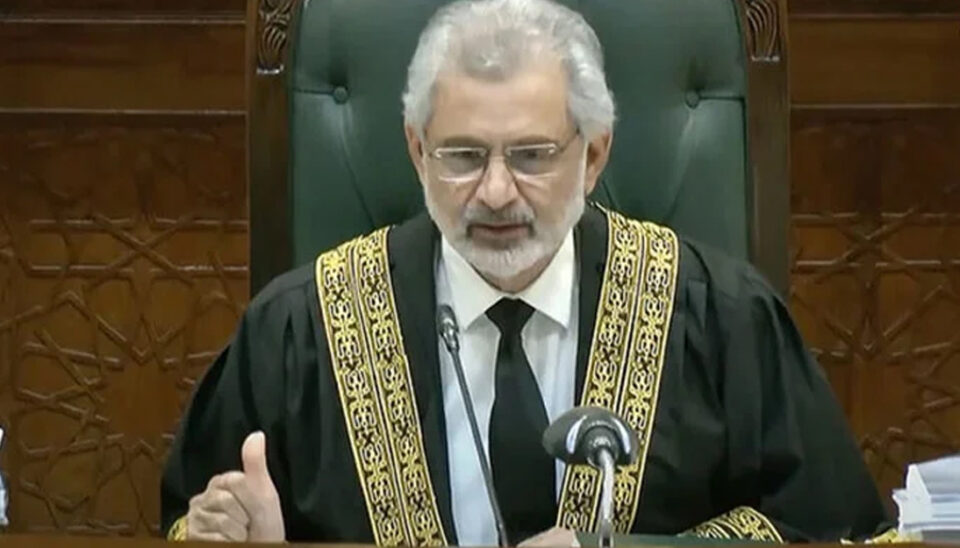Federal Government and PPP Support Review Petition Challenging 2022 Supreme Court Judgment
ISLAMABAD: Chief Justice of Pakistan (CJP) Qazi Faez Isa on Tuesday questioned whether a judge who dissents from a judgment could also be considered as acting on conscience, highlighting the complexity of determining who truly acts with conscience. His remarks came as a newly constituted five-member Supreme Court bench, led by CJP Qazi Faez Isa, began hearing a review petition against a 2022 Supreme Court decision on the interpretation of Article 63-A of the Constitution. Other members of the bench include Justice Amin-ud-Din Khan, Justice Jamal Khan Mandokhel, Justice Naeem Akhtar Afghan, and Justice Mazhar Alam Khan Miankhel.
The federal government and the Pakistan Peoples Party (PPP) endorsed the review petition filed by the Supreme Court Bar Association (SCBA), challenging the 2022 Supreme Court judgment regarding Article 63-A, which pertains to disqualification due to defection.
At the outset of the hearing, SCBA counsel Shahzad Shaukat began presenting his arguments, but Pakistan Tehreek-e-Insaf (PTI) lawyer Barrister Ali Zafar raised an objection over the composition of the bench. However, the CJP dismissed his objection, stating that he had no right to intervene at this stage and asked him to allow the SCBA counsel to continue.
CJP Isa clarified that Justice Munib Akhtar had been invited to be part of the bench but declined due to his prior objections to the constitution of the bench. Consequently, Justice Naeem Akhtar Afghan was included as the next senior-most judge.
During the proceedings, CJP Isa raised concerns about the 2022 judgment that had combined the Presidential Reference with petitions filed under Article 184(3) of the Constitution. He questioned how two different jurisdictions could be merged in such a way, noting that the court is only supposed to provide opinions on Presidential References, not decisions.
SCBA counsel Shaukat argued that the 2022 judgment had declared that political parties were essential for democracy and that defection was detrimental to party unity. However, he contended that the court’s ruling had essentially rewritten the Constitution.
CJP Isa expressed surprise that the judgment had left certain issues unresolved, including whether dissident members could be disqualified simply for casting a vote contrary to party lines. He asked if the judgment had addressed the possible disqualification of members whose votes were not counted.
Shaukat replied that the decision had left such matters to party heads and had not explicitly mentioned automatic disqualification for dissenting members. The Additional Attorney General (AAG), Aamir Rehman, also confirmed that the judgment did not touch on disqualification beyond not counting the dissident’s vote.
CJP Isa raised concerns that the 2022 judgment could potentially undermine Article 95 of the Constitution, which deals with the process of removing a prime minister through a vote of no confidence.
Justice Mandokhail pointed out that in Balochistan, members had moved a no-confidence motion against their own chief minister, and it was difficult to decide matters of conscience in such situations. The CJP questioned whether the judgment was, in effect, shifting Pakistan’s system towards a presidential form of government.
The court has adjourned the hearing until Wednesday at 11:30 am, with other counsels expected to present further arguments. The court requested that counsels assist in determining whether two separate jurisdictions, such as the Presidential Reference and petitions under Article 184(3), can be combined.
The case continues to draw attention, with the federal government and the PPP supporting the review petition, while PTI has expressed opposition to the motion. The final outcome could have significant implications for the interpretation of defection under Article 63-A and the balance of power within Pakistan’s parliamentary democracy.

